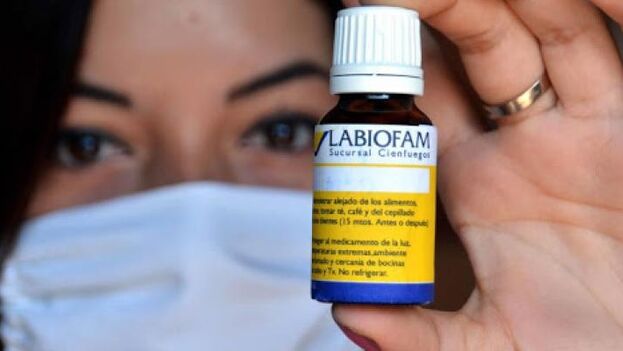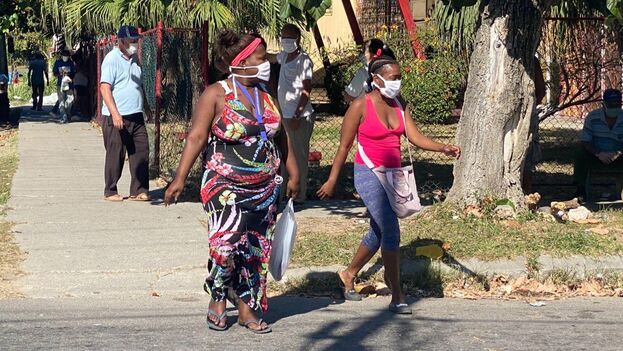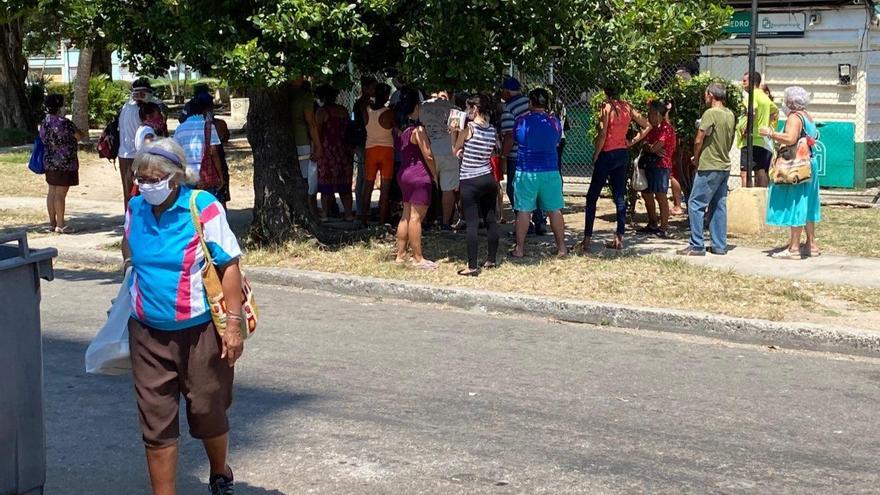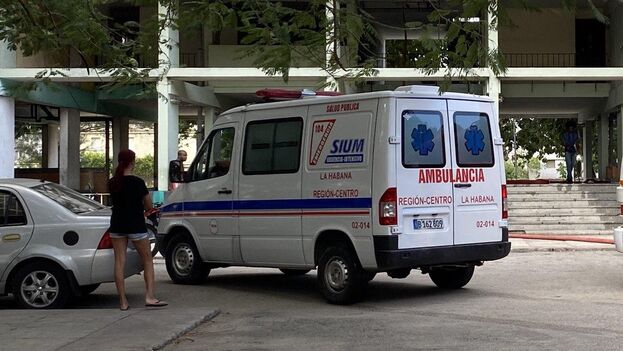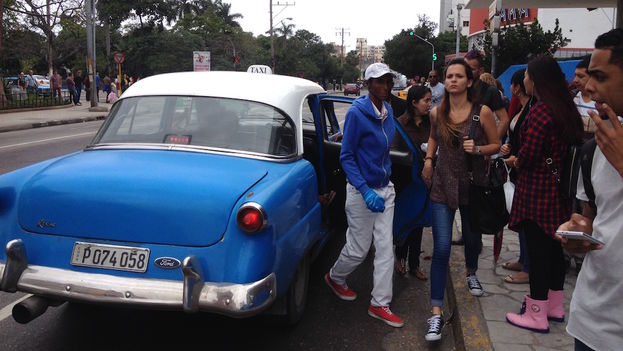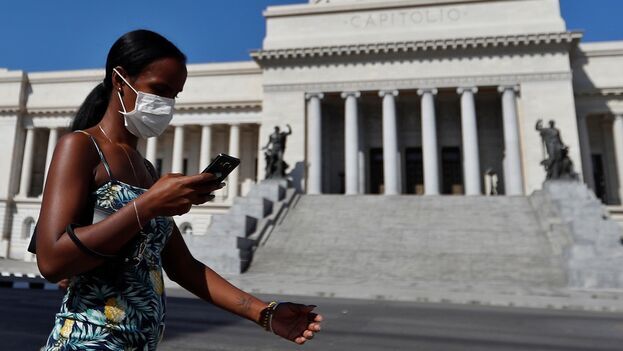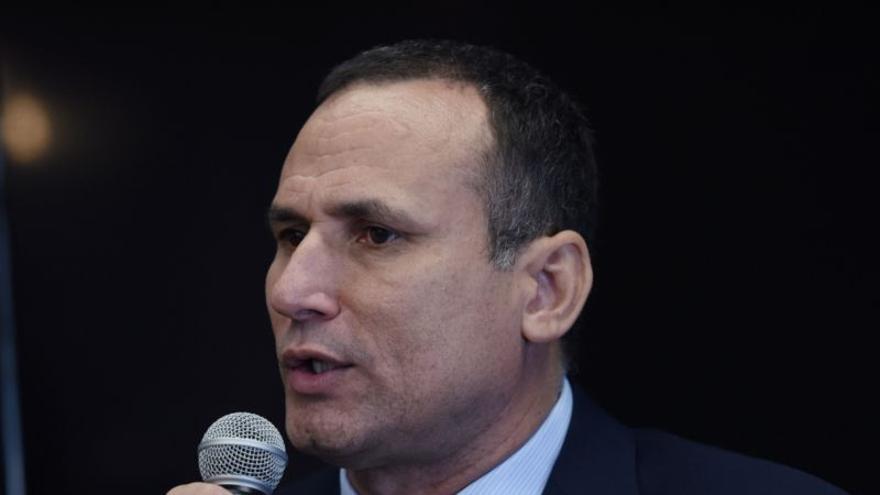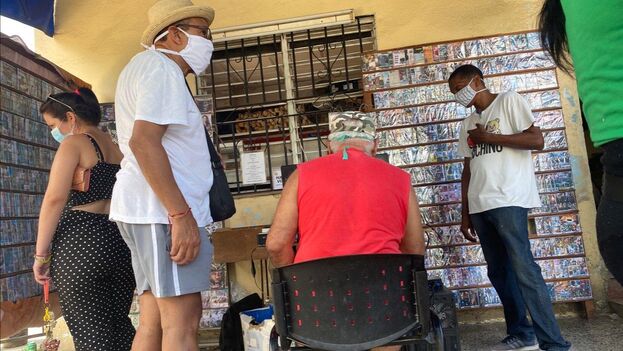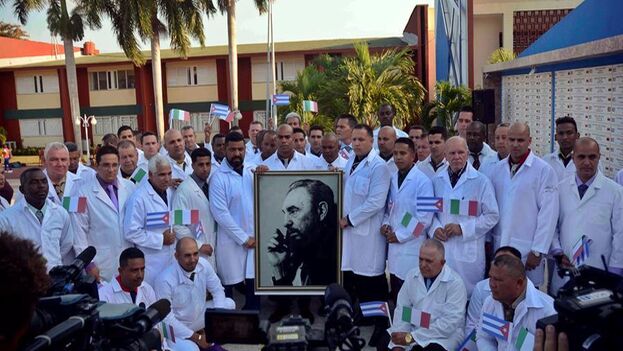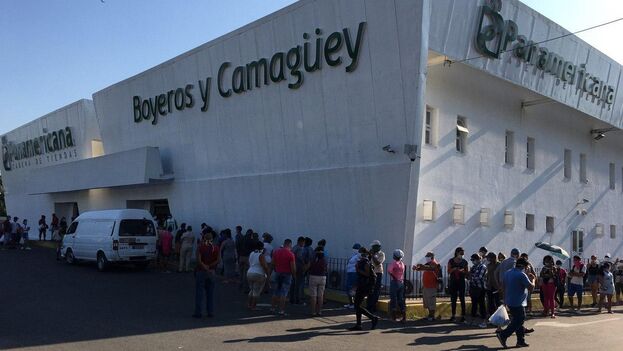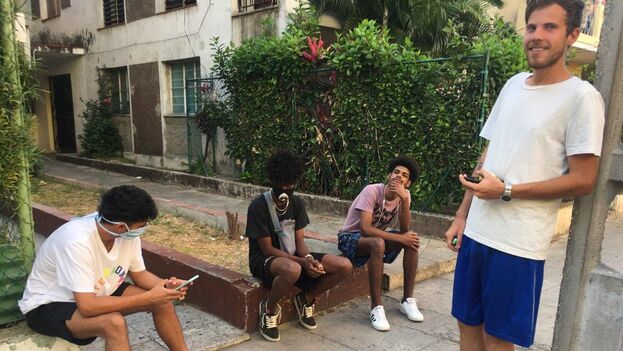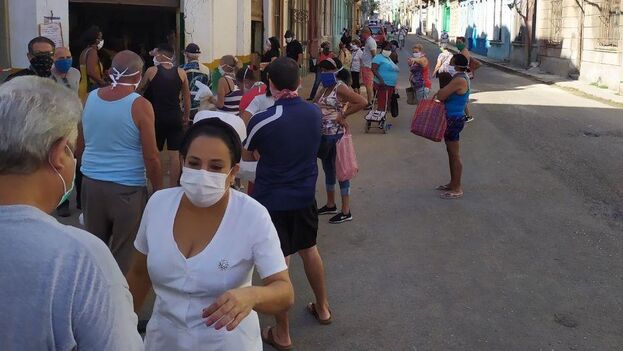
![]() 14ymedio, Yoani Sanchez, Havana, 6 April 2020 — The shouts of a neighbor brought me out of my midmorning stupor, provoked after trying for a whole hour to call one of those customer service phones that rings and rings but nobody answers. “You have to go with your son and husband, because they are giving out two per person!” the lady bellowed from the fifth floor of our building to someone on the 12th floor.
14ymedio, Yoani Sanchez, Havana, 6 April 2020 — The shouts of a neighbor brought me out of my midmorning stupor, provoked after trying for a whole hour to call one of those customer service phones that rings and rings but nobody answers. “You have to go with your son and husband, because they are giving out two per person!” the lady bellowed from the fifth floor of our building to someone on the 12th floor.
I peered out for more details. In a neighborhood store they were selling “ground turkey meat” from Canada on Monday. In order to avoid hoarding, the authorities rationed products that until recently were sold freely. But the trick to buying more is to go with family members, something counterproductive in times of coronavirus.
From my balcony I saw them, including the grandmother, leaving to go to the store where the line began to form. A while later a friend, who had marked his place in line since the early morning, called to tell me he was outside another place to buy chicken and invited me to join him. No way, I told him, even Reinaldo has chosen to be a vegetarian these days, in the face of the dangers that lurked in these crowds. continue reading
The situation is very serious. Covid-19 has taken nine lives on this island, while 350 people have tested positive for the disease and 8 patients remain in critical condition while four are seriously ill, according to official data. Said like this, they only seem like numbers, but in reality they are lives abruptly terminated and people who died, in the majority of cases, without being abe to say goodbye to their families.
How many were infected while standing in line? It is difficult to specify, but the today in Cuba the lines are one of the main “risk areas.” The other danger is our own recklessness. The person who is not aware of the danger and continues to move through the streets without a sense of urgency, the one who believes that nothing will happen to him if he doesn’t wash his hands frequently and the one who insists that the consumption of supplements will prevent him from getting sick.
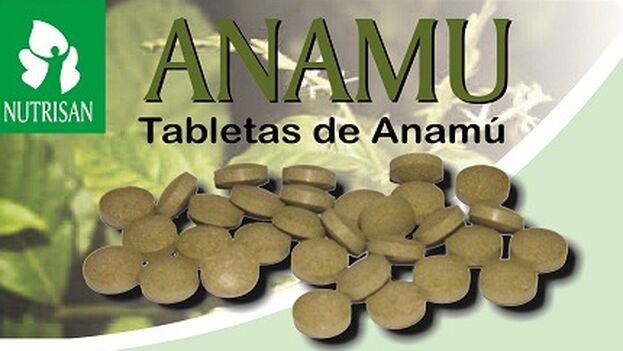
The Santiago de Cuba government-run newspaper, Sierra Maestra, is one of those that promotes natural supplements to avoid contagion. Under the title “Tablets of Anamu vs coronavirus,” this local medium says that it is “a drug that stimulates the production of interferon in the body, an essential protein to combat the presence of various pathogens such as viruses, in this case effective against Covid-19.”
The most dangerous thing about this information, similar to the announcement of homeopathic drops promoted by the Ministry of Public Health (Minsap) to “prevent contagion,, is that it comes from an official source and is endorsed by the almighty State. That someone wants to use these “therapies” as a personal decision is one thing, it is another for them to be promoted as effective in a country where a public debate on their relevance in this case has not been allowed.
Reading, researching and searching for information can prevent us from falling into the clutches of false illusions and supposed miraculous cures. One of the few positive things about this pandemic is that many of my friends and acquaintances have returned to reading, after years when finishing a book was almost impossible due to lack of time and exhaustion at the end of the workday. So, at least, let’s enjoy the books!
Today I returned to the pages of The Language of the Third Reich by Victor Klemperer, a book that takes on special meaning at the moment. My philologist colleague describes in this volume how the fascist regime exalted a rhetoric in which all the products that came out of their industries were shown as “the most modern,” “the most efficient,” “the most powerful.” It immediately reminded me of the headlines in Cuba’s national press these days.
Meanwhile, in the real dimension of life everything is less grandiose but certainly more extraordinary. The pepper seeds I sowed have sprouted on my balcony, the new dog that we picked up from the street has already destroyed her first shoe, and every day that we wake up without breathing problems we celebrate, without triumphalism but with joy.
See other posts in this series.
_______________
COLLABORATE WITH OUR WORK: In this time of Covid-19 crisis, 14ymedio could really use your help to keep the news coming. Please click on this link to support our work.


